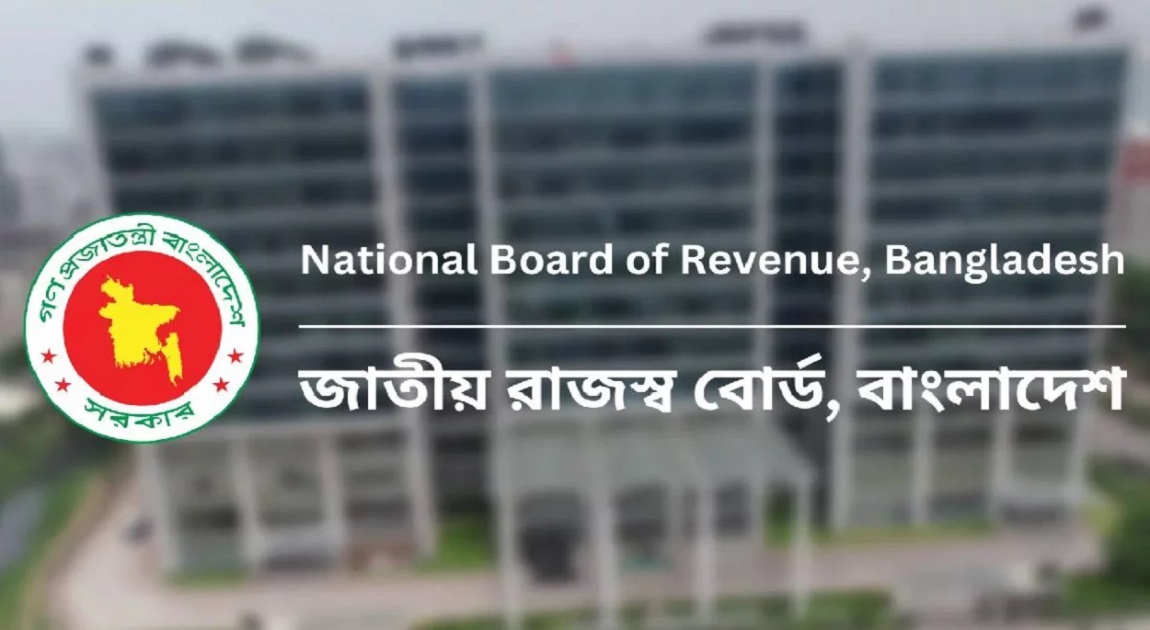The interim government has introduced a sweeping reform plan to dismantle the National Board of Revenue (NBR) and replace it with two separate bodies under the Ministry of Finance: the Revenue Policy Division and the Revenue Management Division.
This move is aimed at separating tax policy formulation from tax administration to increase operational efficiency, eliminate conflicts of interest, and widen the country’s tax base.
The NBR, formed over fifty years ago, has consistently fallen short of meeting its revenue targets. Currently, Bangladesh’s tax-to-GDP ratio stands at around 7.4%, one of the lowest in Asia. For comparison, the global average is 16.6%, while Malaysia maintains a rate of 11.6%. To fulfill the country’s development ambitions, experts suggest raising this ratio to at least 10%.
Reforming the NBR is considered essential to achieving this target. There is a growing consensus among policymakers and stakeholders that entrusting one agency with both tax policy creation and implementation results in inefficiencies and conflict of interest. For years, the business community has criticized the system for prioritizing immediate revenue collection over fairness, economic growth, and long-term planning.
Key issues that have affected the NBR:
Conflict of Interest:
Combining both policy-making and enforcement within a single entity has compromised the integrity of tax administration. The absence of an accountability framework allows tax officials to negotiate with defaulters, often at the expense of public interest. In many cases, tax collectors have avoided penalizing evaders and instead assisted them for personal gain. Furthermore, there is no objective method in place to assess tax officials’ performance, nor is career advancement tied to measurable outcomes.
Ineffective Revenue Collection:
The dual responsibility has weakened both policy development and institutional capacity. This has resulted in a limited tax net and suboptimal revenue collection.
Weak Governance:
The NBR has been marred by erratic enforcement, inadequate support for investors, and governance failures—factors that have damaged investor trust and weakened the legal and regulatory environment.
Bureaucratic Overlap:
The current system, where the head of the Internal Resources Division (IRD) also leads the NBR, has caused confusion and inefficiency, hindering the development and execution of coherent tax policies.
Internal Discontent and Demoralization:
The announcement of the restructuring has led to concern and uncertainty among experienced tax and customs officials, some of whom fear being sidelined or losing relevance in the new framework.
How the Restructuring Is Expected to Help:
The government believes the new model will resolve these longstanding challenges through a clearer, more transparent operational framework:
Distinct Roles and Responsibilities:
The Revenue Policy Division will focus exclusively on crafting tax laws, setting rates, and managing international tax agreements. The Revenue Management Division, on the other hand, will be responsible for implementation—covering audits, enforcement, and compliance. This separation ensures that those responsible for making tax rules will no longer be involved in enforcing them, reducing the risk of collusion and bias.
Enhanced Efficiency and Better Governance:
Specialization in each division’s respective function is expected to reduce overlap, strengthen institutional accountability, and improve overall performance.
Broader Tax Base and More Direct Taxation:
The reform is aimed at expanding the tax net, reducing dependence on indirect taxes, and bolstering direct tax collection through the appointment of competent professionals in focused roles.
Smarter, Development-Focused Policies:
A dedicated policy arm will be able to craft long-term, evidence-based tax strategies instead of reactive, short-sighted measures driven solely by immediate revenue needs.
Increased Investor Confidence:
A modern, rule-based tax administration is expected to improve transparency, reduce complaints from businesses, and attract both domestic and foreign investment.
In essence, the government views this restructuring as far more than an administrative reshuffle. It is seen as a critical step toward building a more just, efficient, and capable tax system—one that is better equipped to serve the needs and aspirations of Bangladesh’s citizens. Strengthening tax policy and cleaning up administration are seen as key prerequisites for sustained national development.












-20260222063838.webp)





-20260221022942.jpg)
-20260221022827.webp)














